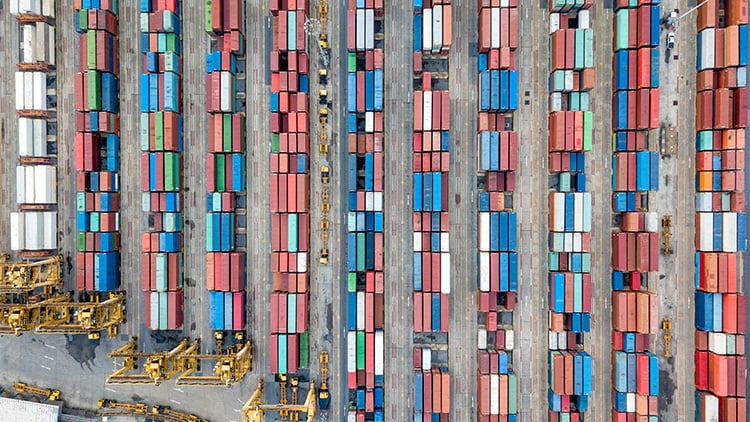Background
Announcements by President Trump during his first cabinet meeting on Wednesday, 26 February signal an escalation in the US approach to tariffs on EU goods.
The week in summary
On Wednesday, 26 February President Trump announced during his first cabinet meeting that tariffs would be imposed on the EU, stating, “We have made a decision and we’ll be announcing it very soon. It’ll be 25%.”
While no specific details have been provided regarding the implementation timeline or whether this will be a blanket rate affecting all goods or specific industries, President Trump indicated that levies would be applied “generally”, suggesting it will “be on cars and all other things”.
In addition to this announcement on the EU, President Trump also advised that tariffs on Canada and Mexico, which had been suspended from 4 February for 30 days, would now be implemented on 2 April, signalling a delay in the previously advised timeline
Digital services tax memo
On 21 February, President Trump signed a memorandum instructing the US Trade Representative to renew probes initiated during his first term and investigate whether US companies are being damaged by countries that levy Digital Service Taxes (DSTs). The results of these reports could lead to tariffs being imposed on these countries.
The UK, France, Italy, Spain, Turkey, Austria and Canada have been specifically noted within the memo as having DSTs and being subject to this investigation. The administration will also review EU and UK policies that may undermine free speech or foster censorship. Previous tariffs were suspended for global tax deal negotiations, which have stalled.
DSTs and being subject to this investigation. The administration will also review EU and UK policies that may undermine free speech or foster censorship. Previous tariffs were suspended for global tax deal negotiations, which have stalled.
Irish trade groups
At the start of this month, the Government decided to establish a US-based Strategic Economic Advisory Panel (SEAP) as part of efforts to intensify outreach in the United States. In line with the commitment in the Programme for Government, the panel will be composed of senior decision-makers in key business sectors in the US. It will provide insights on strategic economic opportunities for Ireland in the critically important and mutually beneficial US-Ireland economic relationship.
The Department of Foreign Affairs and Trade will be responsible for the organisational and logistical aspects of establishing and engaging with the SEAP, supported by the Departments of An Taoiseach; Foreign Affairs and Trade; Enterprise, Tourism and Employment; and Finance.
The work of the SEAP will be complemented by the establishment of a Consultative Group on International Trade Policy. The objective of the Consultative Group is to provide a structured mechanism for engaging key stakeholders in informing the Government’s approach to trade, considering evolving global trade dynamics.
Reaction from Irish and EU business leaders
With the increased risk of a trade war between the US and EU, there has been increased commentary from companies within Ireland on the potential impact.
Glanbia advised that the risk of tariff wars “could potentially impact the importation of key raw materials and/or negatively impact on the group’s international sales channels”.
Paul Merriman, founder of AskPaul and CEO of Fairstone Ireland, highlighted that “those who trade in pharmaceuticals and chemicals will see the most notable change as Trump has stated he wants to push manufacturing back onto US soil”.
Key actions businesses can take today
US import tariffs on EU goods now appear to be an imminent reality. Key actions that can and should be taken include:
- Assessing your customs data to understand your exposure;
- Determining the customs origin of goods shipped to the US to see if they are considered EU-originating; and
- Gaining oversight of the end-to-end supply chain, including having the right data, to assess the impact on material sourcing and exposure for tariffs on component parts.
How we can help
Keeping up to date with the policies and tariff measures President Trump has implemented is crucial to assessing the risk to your supply chain and the impact these tariffs may have. While the exact details of EU tariffs are still to be determined, understanding your product portfolio and the impact these measures may have on your imports is an important first step. We are here to support your business with this analysis and help you navigate these choppy waters. Contact our team to discuss any aspect of this article further.
Tax Services
Driving compliance and efficiency throughout your business.
Contact us











